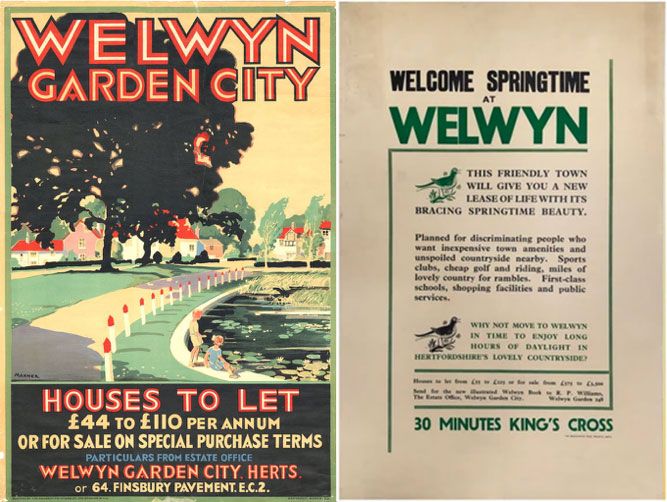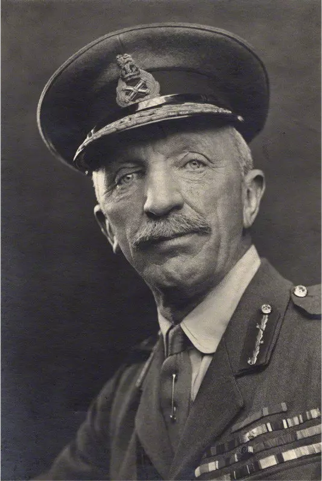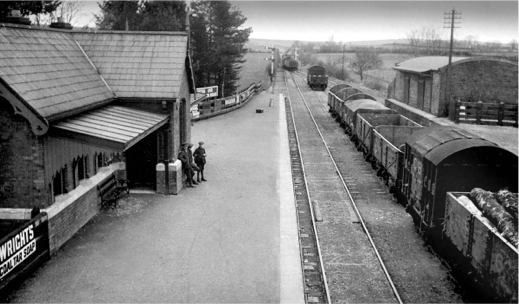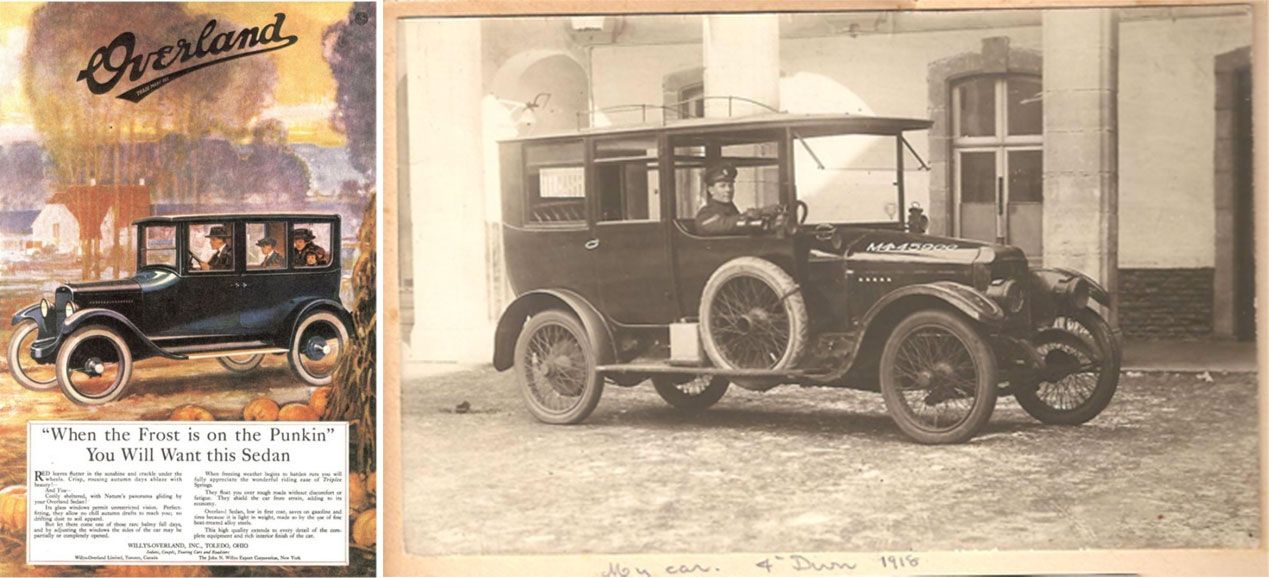Location: Fermoy
My old Pip,
You poor old thing, you will be going into your home very shortly and will have a very dull time till its all over. You can spend your time writing to house agents and getting prospectuses of small country houses for sale (with about 20 acres or more) and pick out the ones you like for us to go and see in Sept. I will come over in time for your Birthday. Have got my leave so can come straight away when you wire. I trust the trains will be running then, as if they are not the boats wont run either.
You have told me nothing about the nurse, you must have seen her by now. I played tennis this afternoon at the club, it was the club day, quite a lot of people there, it rained part of the time which didn’t improve the tennis. Yesterday Danford & I fished, there were some salmon about, very sulky, wouldn’t look at anything; after tea Col Tyrrel and I played some tennis for exercise.
They seem to be having exciting times at Derry. Lucky Cecil came away in time. Things very quiet here the last few days. This railway trouble will keep going on for some time, Im afraid and is bound to end shortly in a stoppage of all trains.
The car is going better now, but still doesn’t take its petrol kindly, there always seems to be a stoppage some-where, as soon as it is put right in one place it starts in another.
Lots and lots of love. Next time you write tell me about the nurse. Love to Cutlett.
Your
C
Letter written before capture to Mrs C.H. Tindall Lucas, The Hall Welwyn, Herts, postmarked Fermoy 26 June. The birthday that CHTL hoped to return for was September 11th.
The ‘home’ was for Pip’s ‘confinement’ leading up to giving birth. The Lucas family had decided that it would be best if Poppy had the baby in London under the care of Dr Eden, the specialist doctor who she had been seeing for three years. There was obviously some concern about the pregnancy and fears that the birth might not be a straight forward one.

Things seemed to be quiet around Fermoy at this point in time, however there was trouble in Derry in the north, where riots had broken out and people had been killed and injured. It appears that was where CHTL's brother-in-law, Milles Frost, was stationed. Frost's wife, CHTL's sister, Cecil had one small son and a troubled city would not have been the best place to bring their son.
Newspapers as far away as the Poverty Bay Herald in New Zealand reported on the unrest:
THE DERRY RIOTS
MANY STREET BATTLES
FIVE MEN KILLED AND 100 INJURED
LONDON, June 20.
In connection with the outbreak of rioting, looting, and incendiarism which began in Londonderry on Friday night, it appears that a party of Unionists, armed with rifles and revolvers, assembled in the waterside district. Neighbouring Catholic residents, fearing an attack, sent girl messengers across the river to summon help from the Sinn Feiners and nationalists. Their arrival resulted in many street battles, residents crawling out of the danger zone along roofs. The troops dispersed the rioters, but sniping continued for three hours.
Hundreds of soldiers and the police patrolled the district on Saturday night, but more serious rioting broke out in the new quarter. Many people were held up and attacked in the street…
Five were killed and one hundred injured, ten seriously.
Poverty Bay Herald, Volume XLVII, Issue 15247, 21 June 1920, Page 3 Source
The headlines over the next few days continued the story of a city torn apart by violence:
June 23
DERRY RIOTS.
SHOOTING CONTINUES.
FOOD DELIVERY STOPPED
NEED FOR MARTIAL LAW URGED
The Argus, Melbourne Thursday 24 June 1920 Source
June 25
LONDONDERRY RIOTS.
MORE TROOPS ARRIVE.
Situation Reported Easier.
Sinn Fein Snipers Killed in Trees
The Argus Melbourne Saturday 26 June 1920 Source
Field Marshall Sir Henry Hughes Wilson, 1st Baronet, GCB , DSO, was Chief of the Imperial General Staff. He was chief advisor on military matters to the government in 1920. He was Anglo Irish and stood as a Unionist MP. Sir Henry was an old Marlburian, being president of the Old Marlburian Club from 1920 -21. He and CHTL were not contemporaries at Marlborough as Wilson had left some years before CHTL started. However, CHTL had almost certainly met him and would have known a fair amount about him from the Old Marlburian Club.

Wilson, the schoolboy, was described by his old headmaster as: ‘whimsical, perhaps a little wild, full of wit and what is rarer than wit, humour’ (The Marlburian 50/829 )29 June 1922),86 ) this description without the ‘whimsical’ could well have described CHTL too. Unlike CHTL, Wilson was not a team player preferring more individual sports like riding, swimming and sailing. He played tennis which was something he and CHTL did have in common. A Marlburian assistant master, F.B. Malim, wrote that Lawn tennis was not deemed a desirable school game as it was not ‘painful enough’ to promote ‘the spirit that faces hardship, the spirit of endurance’. (F.B. Malim ‘Athletics’ p153) Such was the ethos of Marlborough in the 19th and early 20th Centuries! Wilson also took part in regimental Polo which could have provided another venue for the men to have met in.
It was Wilson who had to deal with the abolition of the rank of 'Brigadier General' which signified the leader of a brigade of 4000 men. In due process he upset many brigadier generals who felt that they had worked hard to obtain their rank and who enjoyed the status it gave them. CHTL was fortunate to retire with the title of 'Major General CHT Lucas'.
In London concern was growing about the escalating unrest. Sir Henry Wilson had written in May:
'In Ireland we are getting into a filthier and filthier mess with the result that if the Government continue their present policy of vacillation and funk [‘a state of intense fear or panic’] we shall have to regularly reconquer the country or lose it. To reconquer country will be a serious matter; to lose it would mean the end of the British Empire.’
Wilson to Milne 14th May 1920 p170 The Military Correspondence of Field Marshall Sir Henry Wilson 1918 - 1922
Ed Keith Jeffery The Bodley Head 1985
Wilson felt that the government didn't actually have a policy on Ireland, the cabinet couldn't make up their minds as to what to do. He had tried to warn them but felt that as he was a protestant Ulster man he was viewed as being 'untrustworthy and biassed'. He advocated that the government should hand over control to the military who could then sort out the problems once and for all. However when Winston Churchill who was Secretary of State for War asked for his advice, he was reluctant to give it.
Just prior to CHTL's untimely capture, Wilson and Churchill had been having a series of written exchanges regarding the growing Irish crisis.
Wilson to Churchill (23.6.1920)
These reports show an increasing unsatisfactory position and this is in spite of considerable reinforcements of troops.
I have absolutely no faith in the present regime as a semi-police operation, and I think before long we will find that the soldiers do not like the work...
Churchill to Wilson (24.6.1920)
Have you any definite proposals to make of a practical character?...
Wilson to Churchill (24.6.1920)
You will find my answer on the attached paper 'A'...
Paper 'A'
SECRET
Daily report from G.H.Q. Ireland, 24th June 1920
Guard of one NCO and six men H[ighland]. L[ight]. I[nfantry]. marching through streets were held up and disarmed at Ennis yesterday at 1830. Corporal wounded with a knife. No arrests. At Londonderry heavy snipping on early night 23/24th. Armoured cars returned fire and silenced snipers.
Situation this morning much quieter.
S, of S. [Secretary of State -Churchill]
These are very deplorable incidents and are very bad for the troops. They will continue until the Government realize that they are at war with the Sinn Fein and say so and act on the fact.
H.W. 24.6.20
With all the focus being on the North and the government as usual dithering about what to do,
CHTL didn’t seem to be doing much and possibly the tedium of the situation was getting to him more than anything. He was one of those soldiers who didn't 'like the work’. He had his coping strategies and had filled his spare time with tennis and fishing! This was merely the lull before the storm and the Southern IRA Brigades were about to snatch back the British military's attention in a very daring and dramatic way. Plans were afoot, but CHTL was blissfully unaware. Churchill's frustration and Wilson's feelings of being right were both going to be greatly exaggerated by the coming events.
There had been a series of strikes throughout Ireland as workers staged protests against the declaration of a 'Special Military Area' under the Defence of the Realm Act.
The Defence of the Realm Act (DORA) was passed in the United Kingdom on 8 August 1914, during the early weeks of World War I. It gave the government wide-ranging powers during the war period, such as the power to requisition buildings or land needed for the war effort, or to make regulations creating criminal offences. After the war it was used in Ireland.

In May 1920, Dublin dockers refused to handle anything connected with the military. The Irish Transport and General Workers' Union followed suit when train drivers refused to carry British troops. The government tried to get round this by using blackleg train drivers from England. The strike continued to cause disruption to the train network until December 1920 when the government played their trump card: they threatened to withhold grants from the railway companies, and so prevent the railway workers from being paid. Charles Townshend, 'The Irish Railway Strike of 1920: Industrial Action and Civil Resistance in the Struggle for Independence,' Irish Historical Studies 21, no. 83 (May 1979): 265-82.
Around the time that CHTL was writing his letter to Poppy, Mr Slattery, a local railway official was falling foul of the local Sinn Feiners by aiding the British in assigning troop trains to married drivers who had more mouths to feed and therefore couldn't afford not to work. In a few days time Slattery and CHTL's paths would cross although neither would be aware of the other.
The recurring theme of CHTL’s volatile relationships with the automobile appeared once again. This particular car was destined to meet its end very shortly but its owner wasn’t going to be too sorry.


